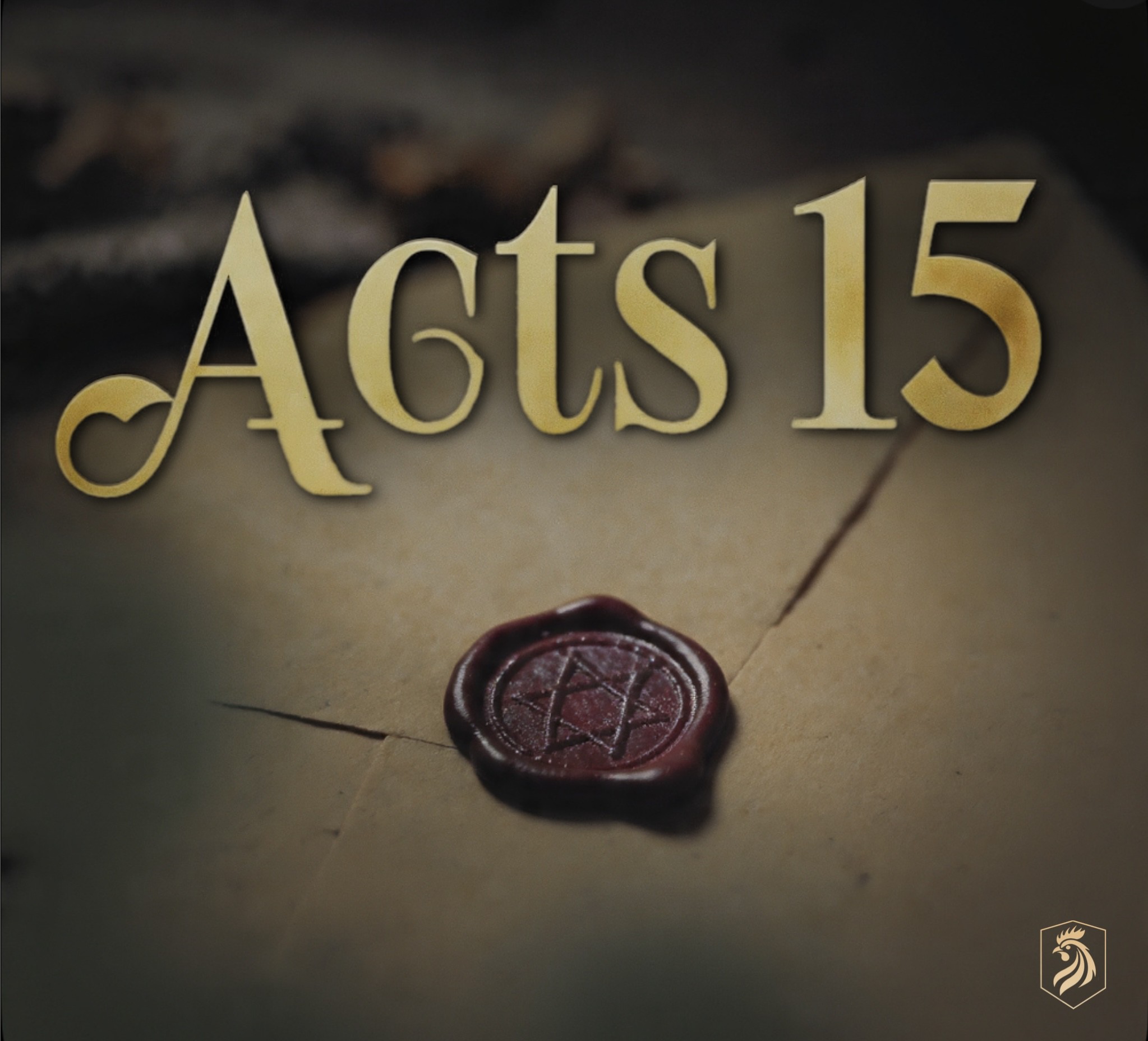Watch
Events
Articles
Market
More
Thought for Today: Monday November 24
When the apostle Paul asked YHVH to remove “his thorn in the flesh”, YHVH did not remove it, saying instead: “My grace is sufficient for you” {2 Corinthians 12:9}. Rather than complain or get angry at YHVH, Paul joyfully submitted to YHVH’s will. He discovered that YHVH’s grace truly was sufficient, even in the midst of pain. The Moshiach desires to be with you in whatever crisis you may find yourself. Call upon Him. See if He will not do as He promised He would. He may not make your problems go away, but He will give you the power to deal with them and to overcome them by His grace.



Most Christian and Messy-anic communities in modern times have been conquered by an overabundance of softness and shallow character, believers begging not to have to become disciples, praying for a way of escape from ordinary responsibility and treating every typical day as a triumph over terrible odds.
The ranks of this spiritual army are overcrowded with worriers when what was called for was warriors. What was wanted was champions but the cheap and the cheaters came to the ranks instead.
And the Day of War is here.
Trained or untrained. Prepared or unprepared.
The Day of War has come.
It doesn’t matter if you are scared, tired, lazy, weak, or cowardly. Yesterday is gone with all the countless chances to make yourselves ready for what was to come and is now here.
You can not beg blessings from Above for what you were already supposed to work for.
You don’t get to ask your fellows for help because it’s time for holy soldiers to march to war…and they can’t carry you.
Don’t pout. No one will pity you. You signed up for a heavenly army and acted like you were at a frat party. And it’s too late to start training now.
The Day of War has come, and you were caught unawares.
You are not ready for this Day of Destiny.
The only thing for it now is to pray for mercy, and stay out of The Way of those who war on your behalf. Flee. Run and hide and hope you will have a second chance when the storm has passed.
Second Guess First Assumptions
Question Everything
Get Biblical
templecrier.com/templars



I think TorahTent.com needs to be redevoped so the directory is not on a subdomain. I started another website the beginning of this month for the city and county I live in at http://CookevilleSocial.com and it has received over 145,000 hits already. It's packed full of things with a social site, a directory, forums and other things. Members can start their own blogs and a variety of things. It's not just for believers but for people in the area I live in. It's a search engine also. Because of that I'm considering starting a search engine with the software I have that will be to serve the body of Messiah.
I am using Cookeville Social to reach people for Messiah without being obvious about it. Please pray that it will serve its purpose and lead people to the Messiah.



Fresh book review for you literary sorts: https://booklight.top/posts/2025-11-23-cowboytails



The Sabbath is for all mankind. The Sabbath was created on the 7th day of creation, kept by all the apostles and early Christians, and will be kept in the future under penalty of death. YHVH aka God rested on the 7th day of creation as an example for mankind the same way that Yeshua aka Jesus was baptized. God was not tired and did not need rest after creating the world, He rested with Adam as an example. Yeshua was sinless and did not need to be baptized, He did that to be an example as well. The first century believers would never have considered changing the Sabbath or stopping it because that was the principle means they identified as worshipers of the one true God. This has never changed and this message proves from scripture that the Sabbath is not just for Christians and Jews, but for all mankind.
https://firstcenturychristiani....ty.net/the-sabbath-i



We are in the ninth biblical month.
https://messiahslove.com/alive..../new-moon-watch-2025



Excerpt from “Circumcision &
Salvation” by Kyle Matthews
“…The argument of the Nazarenes was that, since the Messiah had come, and made The Way of return possible, that the message should go out to the Lost Tribes to restore Israel, as it once was by bringing them, not into Judaism, but into their own inheritance, the inheritance of their ancestors of the Northern Kingdom of Israel. From the Nazarene perspective, the message is not one of universal eternal salvation from fiery damnation, but a universal offer to the Lost Tribes mixed in among the nations, whose ancestors were Israelites, an offer of salvation, from being lost, cut off, and forever forsaken. The Jewish sect of the Nazarenes, contrary to the sect of the Pharisees, saw themselves as Jews and a remnant of Israel purposed to restore all of Israel, rather than to be content being all that remains.
This cannot be stressed enough: there was no new religion. There was no church. There was no Christianity. There was only Judaism. Two opposing sects of the same religion arguing over what the future of their shared faith was supposed to be, and would become... the Pharisees were not opposed to preaching of the Gospel because it was a new religion. They were opposed to this preaching, because it was a threat to their power, it undermined their worldview, and it relegated them to a remnant of a larger body, a piece of a bigger picture, the leftovers of a lost civilization….”
Second Guess First Assumptions
Question Everything
Get Biblical
Read the full article at
templecrier.com/more-calvarian-articles
or click the link below.
https://storage.googleapis.com..../production-ipage-v1



